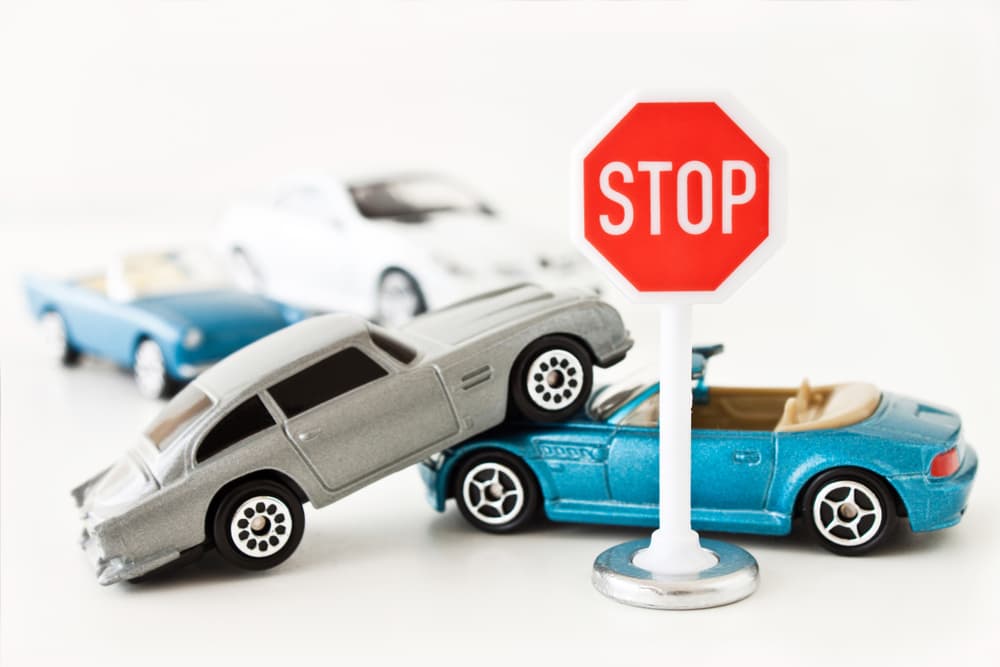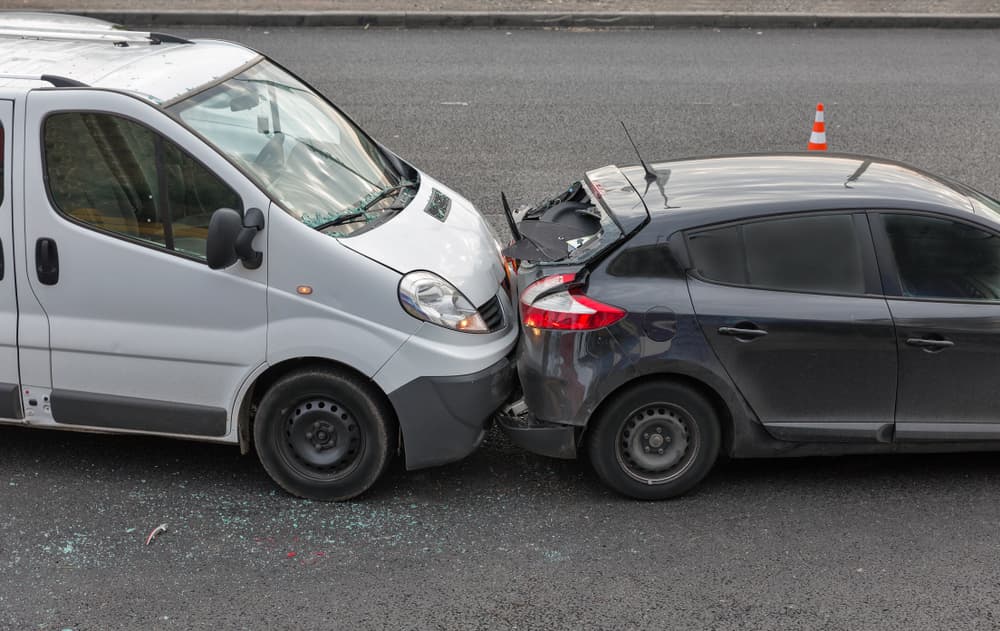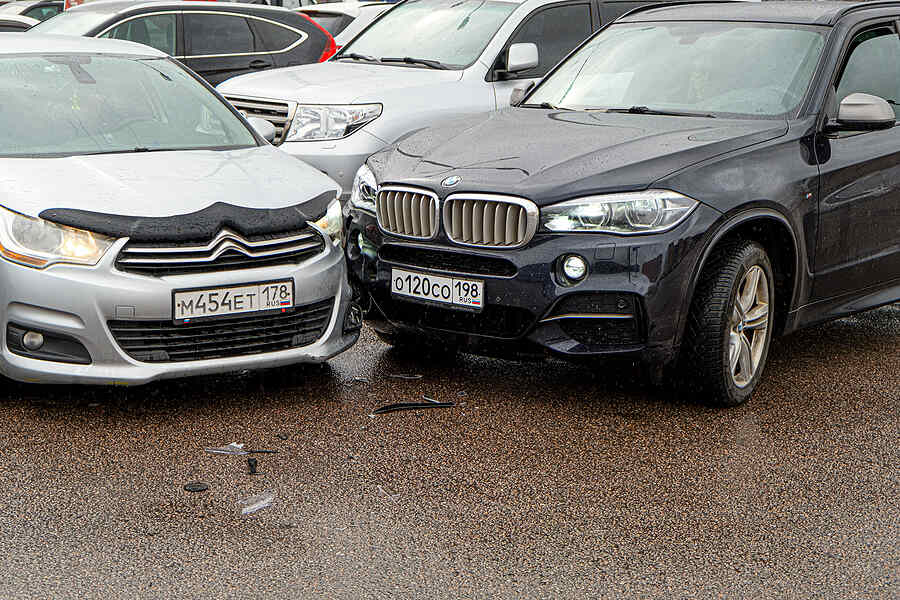A single car accident in Chicago can change everything. Did you know that Illinois reports over 300,000 car crashes annually, with more than 20% resulting in serious injury?
With such startling numbers, you may wonder: Do I have a good case after a car accident?
While each situation is unique, understanding key legal principles, such as negligence and the compensation process, can give you a clearer picture of your claim’s potential.
In this guide, we will break down the factors that determine whether your car accident case has solid legal ground. From the type of damages you can claim to how Illinois' comparative negligence laws may affect your recovery, you’ll learn what it takes to build a successful case.
If you’re unsure about how to proceed with your case, reach out to Abels & Annes, P.C. at (312) 924-7575 for your free consultation. Our Chicago car accident attorneys will walk you through the process and fight to secure the compensation you deserve.
Schedule a Free Initial Consultation Today!
Table of Contents
Factors That Determine the Strength of a Chicago Car Accident Case
When assessing whether you have a strong car accident case in Chicago, several legal and factual elements come into play. To build a successful claim, you must demonstrate that the other driver’s actions meet the criteria for negligence, and that those actions directly caused your injuries. Here's a closer look at the key factors involved:
Proving Negligence
Negligence forms the backbone of any personal injury claim. Under Illinois law, negligence applies when someone fails to act as a reasonably careful person would in a similar situation.
To win a car accident claim, you and your attorney must show that the at-fault driver violated this standard of care, which led to the collision.
There are four critical elements to prove negligence:
Duty of Care
In Chicago, every driver must operate their vehicle safely and responsibly. This means following traffic laws, such as observing speed limits and stopping at red lights.
Breach of Duty
A breach occurs when a driver fails to uphold their duty of care. This could be a driver texting while driving, running a stop sign, or speeding. Any violation of Illinois traffic laws, such as Illinois Statute 625 ILCS 5/11-601 (speeding) or 5/11-306 (traffic signals), could indicate a breach.
Causation
It’s not enough to show that the other driver broke the law; you must demonstrate that this breach directly caused your injuries. For example, if a driver ran a red light and struck your vehicle, this breach would likely count as the cause of the accident.
Damages
Finally, you need to show that you suffered losses — whether physical, financial, or emotional — as a result of the accident. These damages may include medical bills, lost wages, and pain and suffering.
Comparative Negligence in Illinois
Illinois follows a system of modified comparative negligence, meaning that you can still recover damages even if you contributed to the accident. However, your compensation will decrease by your percentage of fault.
According to Illinois law, if you're 50% or more responsible for the accident, you cannot recover any compensation.
Types of Evidence to Strengthen Your Case

Building a strong case requires solid evidence. Some of the most crucial pieces of evidence include (more on these in a later section):
- Police reports
- Photographs and videos
- Witness testimonies
- Medical records
Regardless of how strong your case might seem, if you lack evidence to prove negligence beyond a reasonable doubt, your case will not result in the outcome you want.
Your attorney will assist you in gathering evidence you might not easily have access to, and will piece together all of it to create a cohesive narrative that proves the other party's negligence.
Damages and Compensation
The strength of your case also depends on the damages you can claim.
In Illinois, car accident victims can recover economic damages—like medical expenses, lost income, and property damage—as well as non-economic damages, which include pain and suffering, emotional distress, and loss of enjoyment of life.
In certain cases, punitive damages may apply if the at-fault driver’s behavior was particularly reckless, such as in cases of drunk driving.
What Types of Damages Can You Claim?
Illinois law allows accident victims to pursue several categories of damages depending on your case. Remember, proving negligence is not enough—you need to demonstrate that you suffered injuries because of the at-fault party’s negligence.
Economic Damages
Economic damages reimburse you for out-of-pocket expenses related to the accident.
These can include:
Medical Expenses
This encompasses everything from hospital bills to the cost of ongoing treatments, such as physical therapy or rehabilitation. Medical costs may also include prescription medications, surgical procedures, and emergency care received immediately after the crash.
Lost Wages
If your injuries prevent you from working temporarily or permanently, you may be entitled to compensation for lost wages. This includes not only wages lost during recovery but also any diminished earning capacity if the accident has compromised your ability to work in the future.
Property Damage
You can claim the cost of repairing or replacing your vehicle and any other personal property damaged in the crash as economic damages. Estimates and receipts for vehicle repairs serve as evidence here.
Future Medical Costs
In severe cases, injuries may require long-term treatment. Illinois law allows you to claim compensation for anticipated future medical expenses as long as medical professionals can reasonably estimate these costs.
Non-Economic Damages
Unlike economic damages, non-economic damages are more subjective and compensate you for the emotional and physical toll the accident has taken.
These include:
Pain and Suffering
While difficult to quantify, pain and suffering damages account for the physical discomfort, emotional distress, and trauma caused by the accident. In Illinois, pain and suffering can vary significantly depending on the severity of injuries.
Loss of Enjoyment of Life
If your injuries prevent you from enjoying hobbies, activities, or everyday life the way you did before the accident, you may claim compensation for this loss.
Emotional Distress
Accidents can lead to mental health issues like anxiety, depression, or post-traumatic stress disorder (PTSD). Illinois allows accident victims to seek compensation for emotional distress as part of non-economic damages.
Punitive Damages
The courts rarely award punitive damages in car accident cases, but it may apply in situations where the at-fault party acted with gross negligence or reckless disregard for safety. Examples include cases involving drunk driving or extreme speeding.
Unlike economic and non-economic damages, which compensate victims, punitive damages punish the wrongdoer and deter future reckless behavior.
How Are Damages Calculated?
Calculating damages, particularly non-economic ones, can be complex. In most cases, economic damages are straightforward, as they rely on documentation like medical bills, pay stubs, and repair receipts.
Non-economic damages, however, often involve multipliers or per diem methods. For instance, you may apply a multiplier to your total economic damages to account for the pain and suffering endured.
Evidence Needed to Prove Your Case

Building a strong Chicago car accident case hinges on the quality of the evidence you can present. Even if the fault seems obvious to you, insurance companies and courts require clear, credible evidence to support your claim. Below are the types of evidence that are most important in a car accident case.
Police Reports
A police report is often the first piece of official documentation after an accident. It includes details like the date, time, and location of the accident, witness statements, and whether any traffic citations were issued.
In Chicago, you can request a copy of the police report from the Chicago Police Department or the Illinois State Police if they responded to the accident.
Police reports serve as valuable evidence because they provide an impartial account of the accident, often including the officer’s assessment of fault. Insurance companies frequently refer to these reports when deciding liability.
While you can request a police report on your own, an attorney can review it for any inaccuracies or missing details that might affect your case. Your lawyer will work to correct or supplement an incomplete or one-sided report.
Photographs and Video Evidence
Visual documentation of the accident scene, vehicle damage, and injuries can play a significant role in proving liability. Photographs should capture multiple angles of the crash site, skid marks, road conditions, and any damage to the vehicles.
If possible, you should also photograph any visible injuries you sustained. In some cases, traffic or security camera footage can provide invaluable evidence showing how the accident unfolded.
This visual evidence can help establish the extent of property damage and support your account of the events.
Your attorney will know how to obtain footage from nearby security or traffic cameras, dash cams, or even surveillance from local businesses. They can also analyze this evidence with accident reconstruction experts to demonstrate fault in a more detailed and professional manner.
Medical Records
Medical documentation is crucial for linking your injuries to the accident and proving the severity of those injuries.
Your medical records should include:
- Emergency room reports.
- Doctor’s notes.
- Diagnostic tests like X-rays or MRIs.
- Records of surgeries or other treatments.
- Physical therapy reports.
In Illinois, prompt medical attention is essential for both your health and your legal claim. A delay in seeking treatment can give the opposing party ammunition to argue that your injuries did not stem from the accident or weren’t as severe as you claim.
Witness Statements
Eyewitness testimony can significantly bolster your case, especially when the other driver disputes fault. Witnesses who saw the accident occur can provide objective statements about how it happened, which can help corroborate your version of events. If your case goes to trial, these witnesses may also testify on your behalf.
To ensure their testimony remains useful, gather witness contact information at the scene of the accident, or as soon as possible afterward. This way, your attorney can follow up and collect formal statements later.
Expert Testimony
In some cases, expert testimony can make or break your case. For instance, an accident reconstruction expert can explain how the accident happened based on physical evidence, such as the position of the vehicles and skid marks on the road.
Similarly, medical experts can testify about the long-term effects of your injuries or challenge claims that pre-existing conditions were responsible for your suffering.
Documentation of Financial Losses
To claim compensation for economic damages, you must provide clear records of all costs related to the accident.
This includes:
- Medical Bills: Detailed invoices from hospitals, doctors, and therapists.
- Repair Costs: Estimates and receipts for vehicle repairs or replacement.
- Proof of Lost Wages: Pay stubs, tax returns, or letters from your employer documenting missed work due to your injuries.
Keeping thorough records of these expenses will help you seek full compensation without having to rely on estimates or approximations.
Get the Compensation You Deserve

In the aftermath of a car accident, every second counts, regardless of how strong you might think your case is. Delaying action could mean losing critical evidence, missing legal deadlines, or even jeopardizing your claim entirely under Illinois's strict two-year statute of limitations.
Without timely legal intervention, the insurance companies will quickly offer lowball settlements, leaving you without the compensation you truly deserve.
Don’t risk leaving your fate in the hands of insurance adjusters. Contact Abels & Annes, P.C. today at (312) 924-7575 for a free consultation, and take the first step toward securing justice.
Abels & Annes, P.C.
100 N LaSalle St #1710
Chicago, IL 60602
(312) 924-7575



